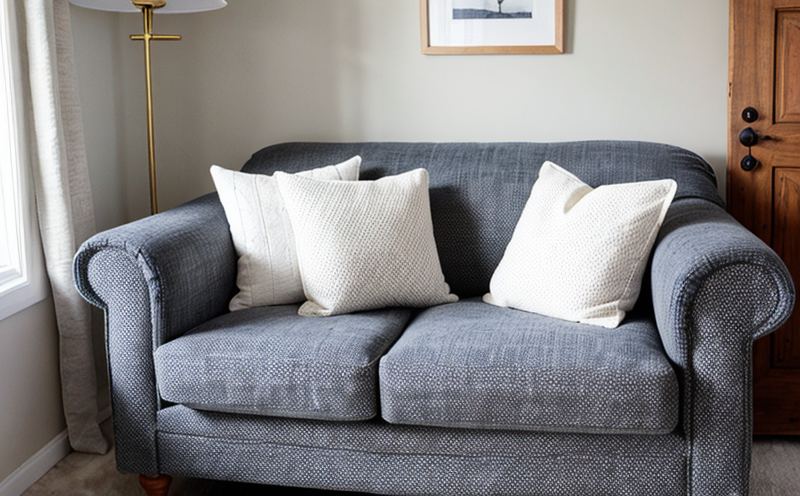Laboratory testing of carpet backing adhesion strength
Carpet backing is a critical component in the manufacturing process of carpets. Its strength and integrity play a pivotal role in ensuring that the carpet remains durable, comfortable, and aesthetically pleasing over its lifespan. In this section, we will delve into the importance of testing carpet backing adhesion strength and how our laboratory can assist you in achieving compliance with industry standards.
Home textiles, including carpets, are subjected to various stresses during use such as foot traffic, cleaning, and environmental factors. The bond between the carpet fibers and the backing must be strong enough to withstand these stresses without failure. If this bond is compromised, it can lead to issues like delamination or premature wear, which not only affect the quality of the product but also impact customer satisfaction.
The European Committee for Standardization (CEN) has established a series of standards that are widely recognized and used in the textile industry. Among these standards is EN 14525, which provides guidelines for testing the adhesion strength between carpet backing and carpet fibers. This standard ensures that manufacturers adhere to consistent quality control measures.
Our laboratory uses advanced equipment tailored specifically for this type of testing. We employ a range of instruments including peel testers and tension machines designed to simulate real-world conditions accurately. These tools help us assess the strength of the bond between different materials used in carpet manufacturing, thereby ensuring that our clients meet all relevant regulatory requirements.
The testing process involves several steps starting from sample preparation where we ensure uniformity across samples. Specimens are cut into standard sizes and shapes to allow for accurate measurement. Once prepared, they undergo adhesive application followed by curing under controlled conditions if necessary. After setting up the specimen on our equipment, we perform the peel test which measures how much force is required to separate the backing from the carpet fibers.
The results obtained during these tests are crucial not only for quality assurance but also serve as valuable data points for research and development efforts aimed at improving product performance. By understanding where weaknesses lie within existing designs, manufacturers can make informed decisions regarding material selection and process optimization.
Scope and Methodology
| Test Parameter | Description |
|---|---|
| Adhesion Strength Measurement | This involves measuring the force required to separate the carpet backing from its fibers using specialized equipment. |
| Sample Preparation | Standardized cutting techniques ensure uniformity among samples for consistent testing results. |
| Peel Test Procedure | A peel test is conducted to determine the amount of force needed to detach the backing from the carpet fibers. |
| Curing Conditions (if applicable) | Some specimens may require specific temperature and humidity levels before testing. |
Eurolab Advantages
At Eurolab, we pride ourselves on offering comprehensive textile testing services that go beyond basic compliance checks. Our team of experts understands the nuances involved in home textile manufacturing and can provide tailored solutions to meet your specific needs.
We offer fast turnaround times without compromising on accuracy or precision. With state-of-the-art facilities equipped with cutting-edge technology, our laboratory ensures reliable test results every time. Additionally, we stay updated with the latest developments in the field through continuous training and certification programs.
Our commitment to quality extends beyond just testing. We work closely with clients throughout the entire process from initial consultation right up until final report delivery. This collaborative approach allows us to identify potential problem areas early on and offer proactive solutions that enhance overall product performance.
Quality and Reliability Assurance
At Eurolab, we understand the importance of reliability in textile testing. That's why we invest heavily in maintaining high standards across all aspects of our operations. From personnel to equipment calibration, nothing is left to chance.
All members of our team undergo rigorous training programs designed specifically for the latest techniques and best practices in textile analysis. Regular audits ensure that everyone remains compliant with international standards like ISO 9001:2015 which govern quality management systems.
Our instruments are regularly checked against reference materials to guarantee accuracy. Calibration records are meticulously maintained for traceability purposes. By adhering strictly to these protocols, we can provide you peace of mind knowing that your samples will receive the most accurate assessments possible.





